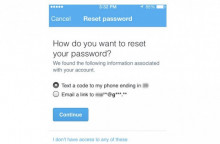Cisco general counsel: US Government has overreached, and should not interfere with the lawful delivery of our products
Today’s security challenges are real and significant. We want governments to detect and disrupt terrorist networks before they inflict harm on our society, our citizens, and our systems of government. We also want to live in countries that respect their citizens’ basic human rights. The tension between security and freedom has become one the most pressing issues of our day. Societies wracked by terror cannot be truly free, but an overreaching government can also undermine freedom.













































































